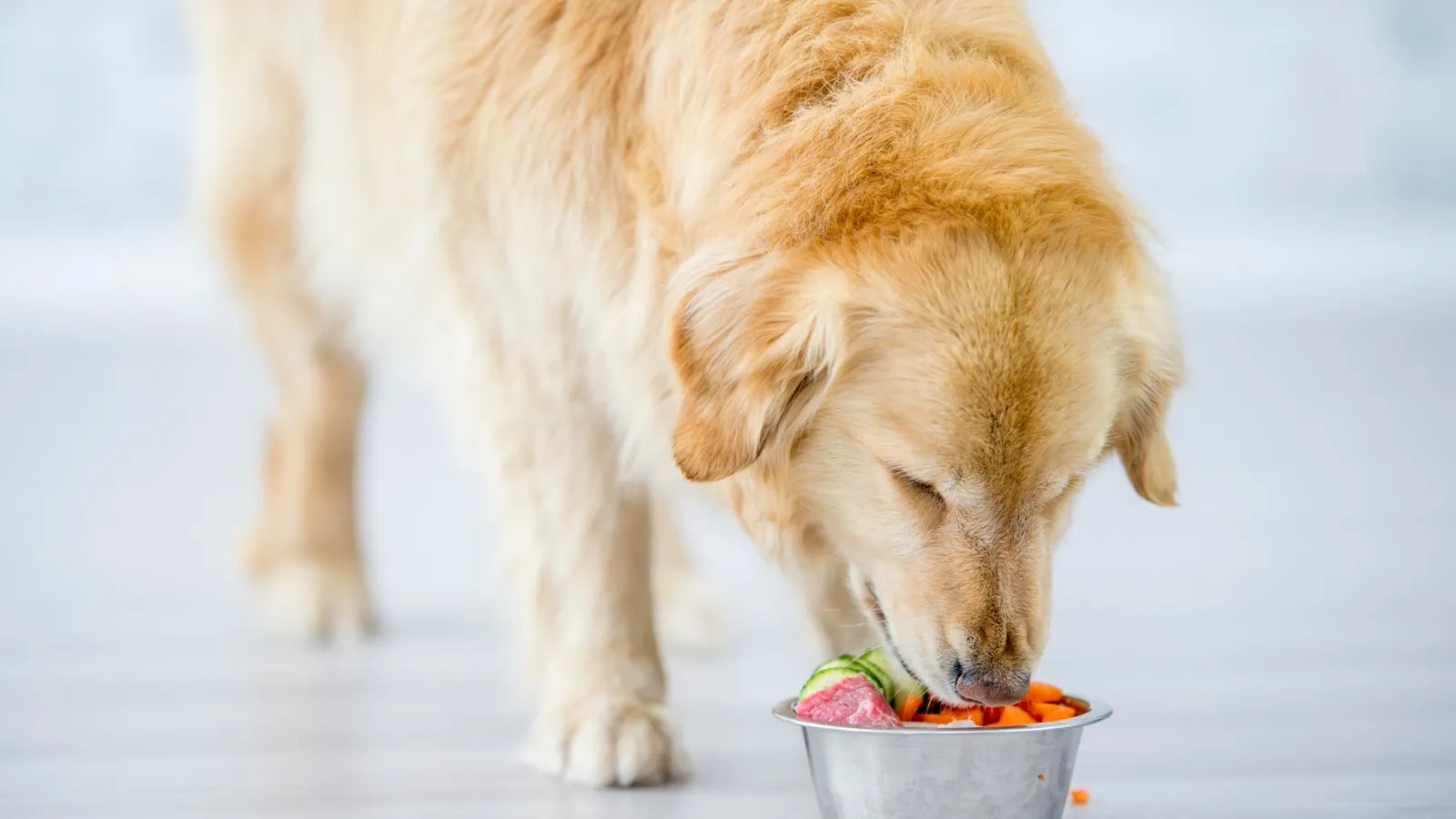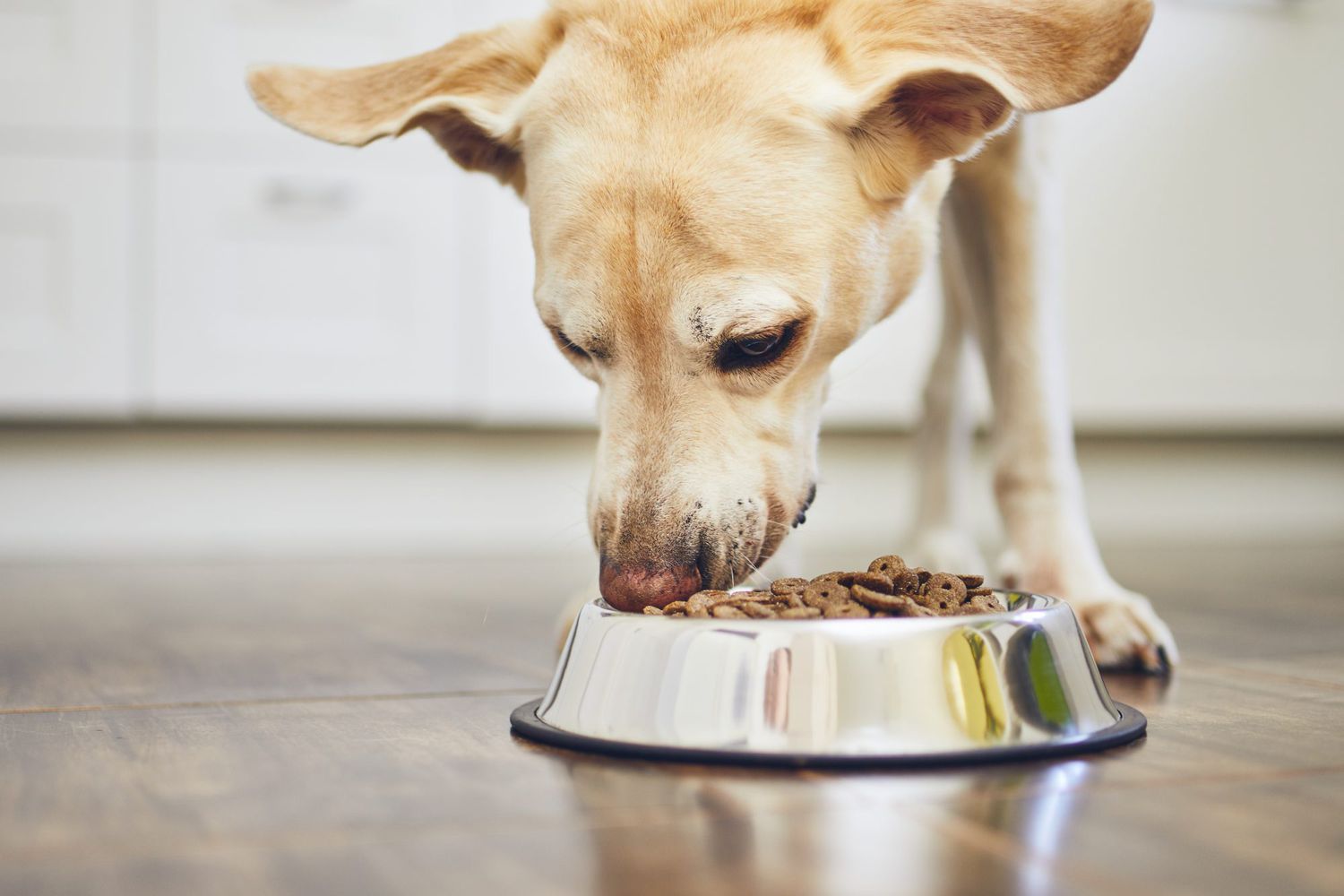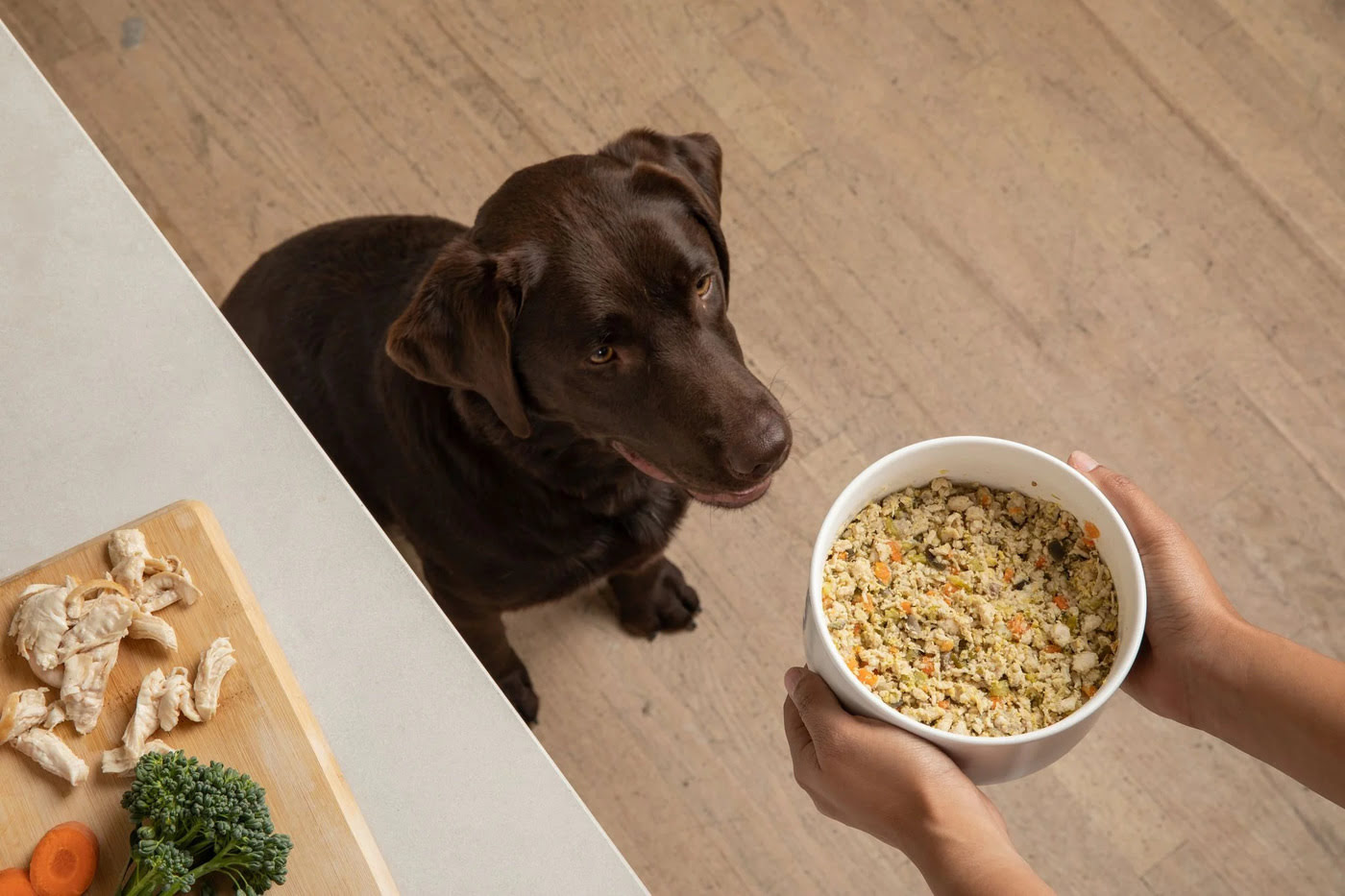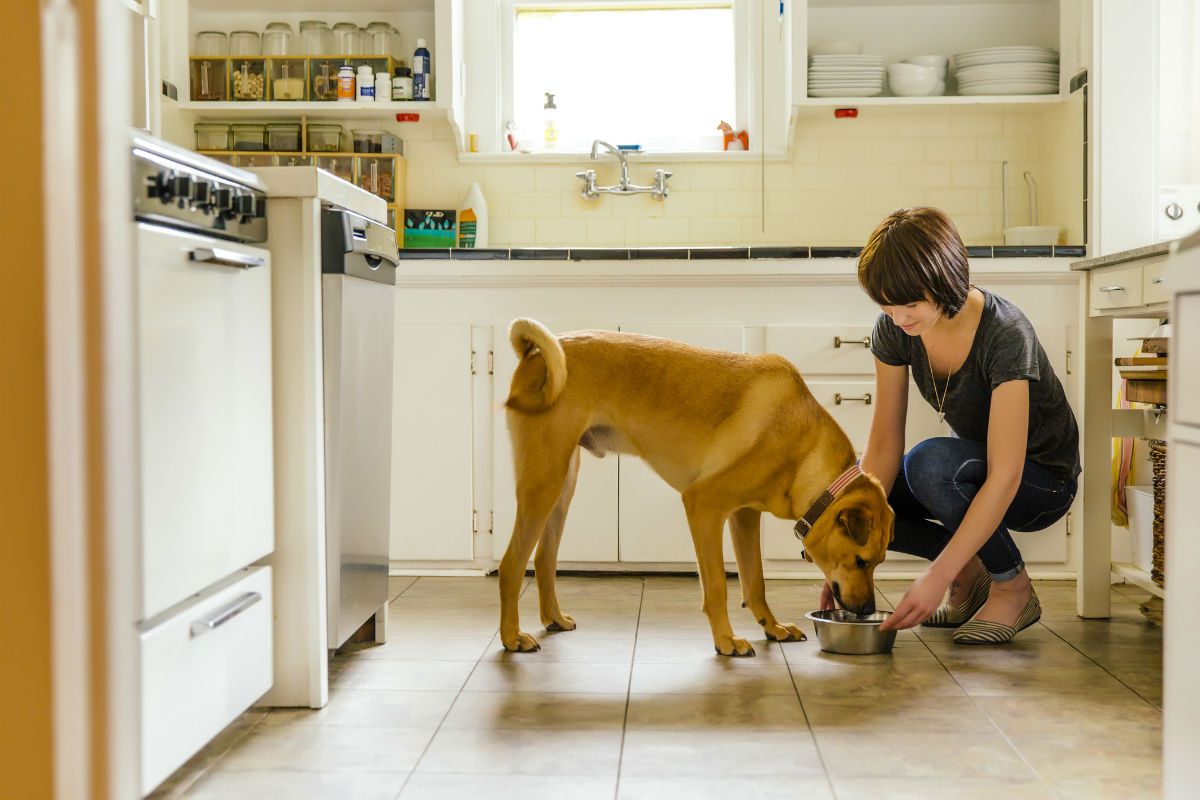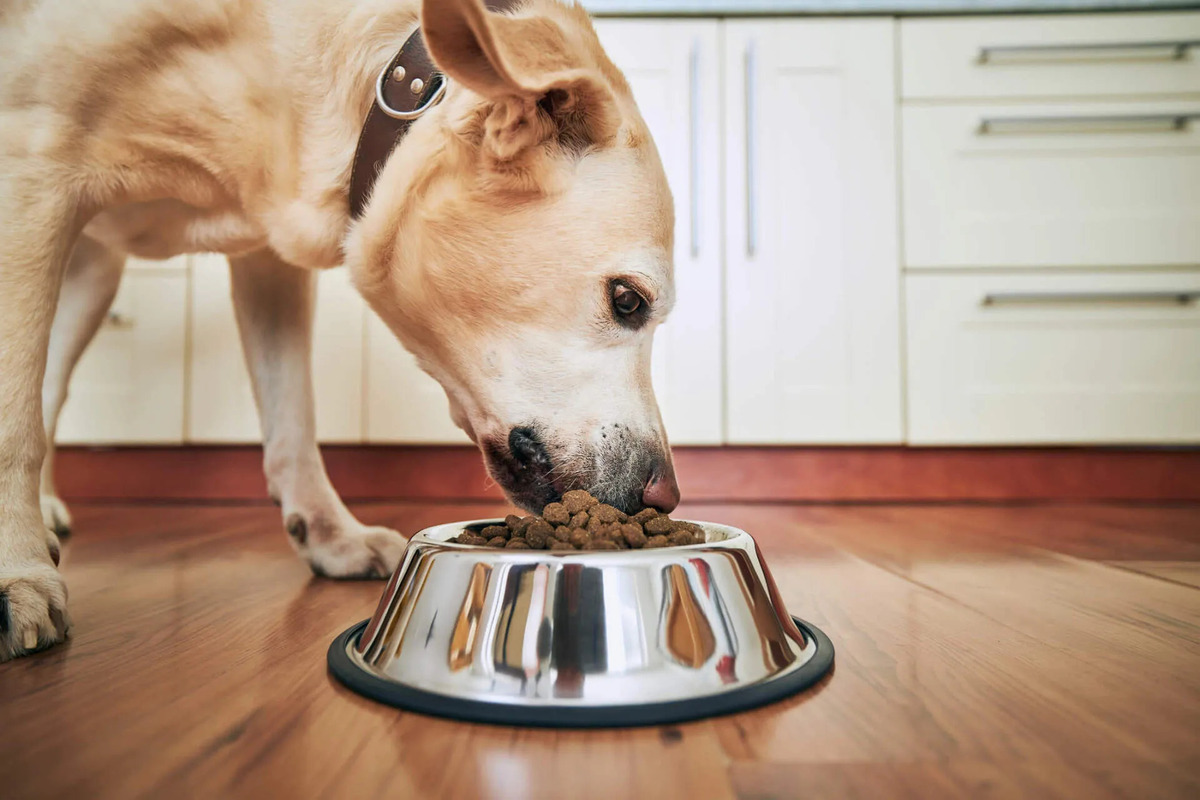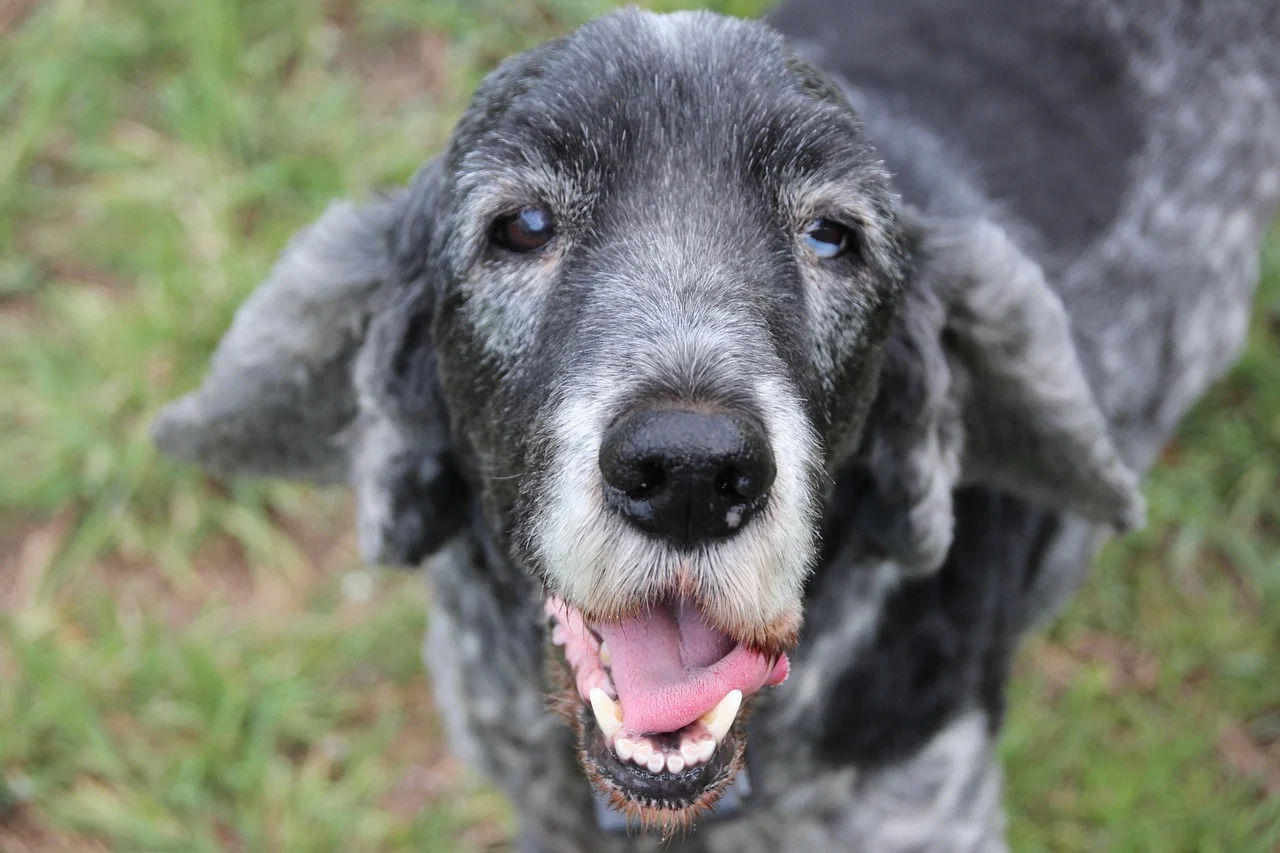Home>Health & Wellness>Common Health Issues>What To Feed A Dog That Has Diarrhea From A Chicken Allergy


Common Health Issues
What To Feed A Dog That Has Diarrhea From A Chicken Allergy
Modified: February 21, 2024
If your dog has diarrhea from a chicken allergy, learn what to feed them to alleviate symptoms. Discover solutions for common health issues.
(Many of the links in this article redirect to a specific reviewed product. Your purchase of these products through affiliate links helps to generate commission for Pawsomeoldies.com, at no extra cost. Learn more)
Table of Contents
Introduction
Dealing with a dog's health issues can be a challenging and concerning experience for any pet owner. One common health issue that many dogs face is diarrhea, which can be caused by various factors, including food allergies. In particular, chicken allergies in dogs can lead to digestive issues, such as diarrhea, and it's essential for pet owners to understand how to address this issue effectively.
When a dog experiences diarrhea due to a chicken allergy, it can be distressing for both the pet and the owner. However, with the right knowledge and guidance, it is possible to manage this condition and improve the dog's overall well-being. This article aims to provide valuable insights into understanding chicken allergies in dogs, diagnosing diarrhea resulting from a chicken allergy, and offering practical recommendations for managing this health issue through dietary adjustments.
By gaining a deeper understanding of how chicken allergies can impact a dog's digestive system and learning about suitable dietary alternatives, pet owners can take proactive steps to alleviate their furry companion's discomfort. With the right approach and a commitment to their pet's health, pet owners can navigate the challenges of managing diarrhea caused by a chicken allergy and help their beloved dog lead a happier, healthier life.
Read more: What To Feed A Dog That Has Allergies
Understanding Chicken Allergies in Dogs
Chicken allergies are a common concern among dogs and can manifest in various ways, including digestive issues such as diarrhea. An allergy occurs when a dog's immune system overreacts to certain proteins found in chicken, leading to a range of symptoms that can affect their overall well-being. It's important for pet owners to recognize the signs of a chicken allergy in their dogs and understand how it can impact their health.
When a dog is allergic to chicken, their immune system identifies specific proteins in chicken as harmful invaders, triggering an immune response. This response can lead to the release of histamines and other chemicals, resulting in various allergic symptoms. These symptoms may include digestive disturbances, skin irritation, itching, ear infections, and respiratory issues. In the case of a chicken allergy, digestive problems such as diarrhea can be particularly prevalent.
Diarrhea resulting from a chicken allergy is a distressing experience for dogs and can significantly impact their quality of life. The inflammation and irritation in the digestive tract caused by the allergic reaction can lead to loose stools, increased frequency of bowel movements, and discomfort for the affected dog. Additionally, chronic diarrhea can lead to dehydration and nutritional deficiencies, further compromising the dog's health.
It's important to note that chicken allergies can develop at any stage of a dog's life, and some breeds may be more predisposed to food allergies than others. Additionally, environmental factors, genetics, and previous exposure to chicken-based products can contribute to the development of allergies in dogs.
Understanding the nuances of chicken allergies in dogs is crucial for pet owners, as it enables them to identify potential triggers and take proactive measures to manage their dog's health effectively. By recognizing the symptoms of a chicken allergy and its impact on a dog's digestive system, pet owners can work towards implementing dietary changes and seeking appropriate veterinary care to address this health issue.
In the following sections, we will delve into the process of diagnosing diarrhea resulting from a chicken allergy and explore recommended dietary adjustments to alleviate the symptoms and improve the overall well-being of dogs with chicken allergies.
Diagnosing Diarrhea from Chicken Allergy
Diagnosing diarrhea resulting from a chicken allergy in dogs requires a comprehensive approach that involves careful observation, elimination diets, and veterinary guidance. When a dog exhibits symptoms of diarrhea, it is essential for pet owners to consider the possibility of a food allergy, particularly a chicken allergy, as a potential cause.
The diagnostic process often begins with a thorough examination of the dog's medical history and a detailed discussion of the symptoms with a veterinarian. Pet owners should provide specific details about the dog's diet, including the types of food and treats consumed, to help identify potential allergens. Additionally, any recent changes in the dog's diet or exposure to new food products should be communicated to the veterinarian.
To pinpoint the underlying cause of the diarrhea, a veterinarian may recommend an elimination diet. This involves removing chicken and any chicken-based ingredients from the dog's diet and replacing them with alternative protein sources. During this period, close monitoring of the dog's symptoms is crucial. If the diarrhea subsides or significantly improves after eliminating chicken from the diet, it can indicate a potential chicken allergy.
In some cases, veterinarians may suggest conducting allergy testing to identify specific allergens triggering the dog's symptoms. Allergy testing can involve blood tests or skin prick tests to detect the presence of antibodies or allergic reactions to chicken proteins. These tests can provide valuable insights into the dog's specific sensitivities and help guide dietary adjustments to manage the allergy effectively.
Furthermore, veterinarians may recommend fecal examinations and other diagnostic tests to rule out other potential causes of diarrhea, such as parasitic infections or gastrointestinal disorders. By ruling out other underlying health issues, veterinarians can focus on addressing the specific dietary triggers contributing to the dog's diarrhea.
It's important to emphasize the collaborative role of pet owners and veterinarians in diagnosing diarrhea resulting from a chicken allergy. Open communication, diligent observation of the dog's symptoms, and adherence to diagnostic protocols recommended by the veterinarian are essential for achieving an accurate diagnosis and implementing appropriate dietary modifications to alleviate the dog's discomfort.
By actively participating in the diagnostic process and seeking professional guidance, pet owners can gain clarity on the underlying cause of their dog's diarrhea and take proactive steps to manage the condition effectively. This collaborative approach sets the foundation for implementing targeted dietary changes and improving the overall well-being of dogs with chicken allergies.
Recommended Diet for Dogs with Chicken Allergy
When it comes to addressing a dog's chicken allergy and the associated digestive issues, implementing a suitable diet is paramount in alleviating the symptoms and promoting the dog's overall well-being. Once a chicken allergy has been diagnosed, transitioning the dog to a carefully selected diet that excludes chicken and its derivatives is essential. The recommended diet for dogs with a chicken allergy focuses on providing alternative protein sources and ensuring balanced nutrition to support the dog's health.
1. Novel Protein Sources:
Introducing novel protein sources that the dog has not been previously exposed to can be an effective approach. Protein options such as turkey, duck, venison, or fish can serve as suitable alternatives to chicken. These novel protein sources can provide essential amino acids while minimizing the risk of triggering allergic reactions in dogs with chicken allergies.
Read more: What To Do For Dogs With Chicken Allergies
2. Limited Ingredient Diets:
Opting for limited ingredient diets that feature a single protein source and carefully selected carbohydrates can simplify the process of identifying and managing food allergies. These specialized diets minimize the number of ingredients, reducing the likelihood of exposure to potential allergens. Additionally, limited ingredient diets often incorporate alternative protein sources, making them well-suited for dogs with chicken allergies.
3. Grain-Free Formulas:
Selecting grain-free formulas can be beneficial for dogs with chicken allergies, as these formulas eliminate grains such as wheat, corn, and soy that may contribute to digestive sensitivities. Grain-free options often feature alternative carbohydrate sources, such as sweet potatoes or peas, which can support digestive health while catering to the dietary needs of dogs with chicken allergies.
4. Prescription Diets:
In some cases, veterinarians may recommend prescription diets specifically formulated for dogs with food allergies. These diets are meticulously crafted to exclude common allergens, including chicken, and may incorporate hydrolyzed proteins or novel protein sources to minimize the risk of triggering allergic reactions. Prescription diets offer a targeted approach to managing food allergies and can provide comprehensive nutritional support for dogs with chicken allergies.
5. Consultation with a Veterinarian:
Seeking guidance from a veterinarian is crucial when selecting an appropriate diet for dogs with chicken allergies. Veterinarians can offer tailored recommendations based on the dog's specific dietary needs, health status, and allergy severity. Additionally, they can provide valuable insights into commercial diets, homemade meal options, and nutritional supplements that align with the dog's allergy management plan.
By prioritizing the exclusion of chicken and integrating alternative protein sources, limited ingredient diets, grain-free formulas, and prescription diets, pet owners can effectively address their dog's chicken allergy and mitigate the associated digestive issues. Implementing a carefully curated diet tailored to the dog's allergy profile is instrumental in promoting digestive comfort and supporting the dog's overall health and vitality.
Alternative Protein Sources for Dogs with Chicken Allergy
When addressing a dog's chicken allergy, identifying suitable alternative protein sources is pivotal in formulating a well-balanced and allergen-free diet. By incorporating alternative protein sources, pet owners can provide their dogs with essential nutrients while minimizing the risk of triggering allergic reactions. Here are several alternative protein sources that can serve as valuable substitutes for chicken in the diet of dogs with chicken allergies:
1. Turkey:
Turkey is a popular alternative protein source for dogs with chicken allergies. It offers a rich protein profile and essential amino acids, making it a nutritious option for supporting the dog's overall health. Turkey-based dog food and treats provide a flavorful and easily digestible protein source, catering to the dietary needs of dogs with chicken allergies.
2. Duck:
Duck meat serves as an excellent alternative protein source for dogs with chicken allergies. It is known for its distinct flavor and high protein content, making it a palatable and nutritious option for dogs requiring a chicken-free diet. Duck-based dog food and treats offer a novel protein source that can help alleviate digestive issues associated with chicken allergies.
3. Venison:
Venison, derived from deer meat, is a novel protein source that is often well-tolerated by dogs with food sensitivities, including chicken allergies. Venison-based diets provide a lean and nutrient-rich protein option, offering essential amino acids and supporting the dog's muscle health. Venison can be a valuable inclusion in the diet of dogs requiring alternative protein sources due to chicken allergies.
4. Fish:
Fish-based protein sources, such as salmon, trout, or whitefish, can offer a unique and highly digestible protein option for dogs with chicken allergies. Fish is rich in omega-3 fatty acids, which contribute to skin and coat health, making it a beneficial addition to the diet of dogs with food allergies. Fish-based diets provide a diverse protein profile and can be well-suited for dogs with sensitivities to poultry proteins.
5. Lamb:
Lamb meat serves as an alternative protein source that can be beneficial for dogs with chicken allergies. Lamb-based diets offer a distinct flavor profile and essential nutrients, including protein and B vitamins, supporting the dog's overall well-being. Lamb can be incorporated into specialized diets tailored to dogs with food sensitivities, providing a wholesome and easily digestible protein option.
By integrating these alternative protein sources into the diet of dogs with chicken allergies, pet owners can diversify their pet's nutritional intake while addressing the specific dietary requirements associated with food sensitivities. These alternative protein options offer a range of essential nutrients, support digestive comfort, and contribute to the overall health and vitality of dogs with chicken allergies. When selecting dog food and treats, pet owners should prioritize products that clearly indicate the absence of chicken and its derivatives, ensuring a tailored and allergen-free diet for their beloved canine companions.
Tips for Managing Diarrhea in Dogs with Chicken Allergy
Managing diarrhea in dogs with a chicken allergy requires a comprehensive approach that focuses on alleviating symptoms, supporting digestive health, and promoting overall well-being. Here are valuable tips to help pet owners effectively manage diarrhea in dogs with chicken allergies:
-
Strict Dietary Compliance: Adhering to a strict chicken-free diet is essential for managing diarrhea in dogs with a chicken allergy. Ensure that the dog's food, treats, and any dietary supplements are free from chicken and its by-products. Avoiding accidental exposure to chicken-derived ingredients is crucial in preventing allergic reactions and minimizing digestive disturbances.
-
Gradual Diet Transitions: When transitioning the dog to a new diet, particularly one that excludes chicken, gradual transitions are recommended. Slowly introduce the new food while reducing the previous diet to minimize digestive upset. Gradual transitions allow the dog's gastrointestinal system to adapt to the dietary changes, reducing the likelihood of exacerbating diarrhea.
-
Hydration Support: Maintaining adequate hydration is vital for dogs experiencing diarrhea. Ensure access to fresh, clean water at all times to prevent dehydration. In cases of persistent diarrhea, electrolyte solutions or veterinary-recommended hydration products can help replenish lost fluids and essential minerals, supporting the dog's recovery.
-
Probiotic Supplementation: Incorporating veterinarian-approved probiotic supplements can aid in restoring the dog's gut health and promoting balanced digestion. Probiotics contribute to the growth of beneficial gut bacteria, potentially alleviating diarrhea and supporting the dog's overall gastrointestinal function.
-
Regular Monitoring: Monitor the dog's bowel movements, overall demeanor, and appetite closely. Keeping track of any changes in stool consistency, frequency of diarrhea, and the dog's general well-being can provide valuable insights into the effectiveness of dietary and management strategies. Timely adjustments can be made based on observed responses.
-
Consultation with a Veterinarian: Seeking guidance from a veterinarian is crucial for managing diarrhea in dogs with a chicken allergy. Veterinarians can offer tailored recommendations, prescribe medications to address diarrhea if necessary, and provide professional insights into managing the dog's specific health needs.
-
Stress Management: Minimizing stress and anxiety in dogs can contribute to improved digestive health. Creating a calm and comfortable environment, providing regular exercise, and offering mental stimulation can help reduce stress levels, potentially benefiting the dog's gastrointestinal function.
By implementing these tips, pet owners can proactively manage diarrhea in dogs with chicken allergies, alleviate discomfort, and support the dog's journey towards improved digestive wellness. Prioritizing dietary compliance, hydration, probiotic support, and veterinary consultation can significantly contribute to the effective management of diarrhea in dogs with chicken allergies, ultimately enhancing their quality of life.
Conclusion
In conclusion, addressing diarrhea resulting from a chicken allergy in dogs requires a multifaceted approach that encompasses understanding the nuances of food allergies, implementing tailored dietary adjustments, and actively managing the dog's digestive health. By gaining insights into the impact of chicken allergies on a dog's well-being and recognizing the symptoms of allergic reactions, pet owners can take proactive steps to support their furry companions effectively.
The journey of managing diarrhea in dogs with chicken allergies begins with a thorough diagnostic process, involving collaboration with veterinarians to identify the specific dietary triggers contributing to the allergic reactions. Through elimination diets, allergy testing, and comprehensive evaluations, pet owners can gain clarity on the underlying cause of their dog's diarrhea and initiate targeted dietary modifications to alleviate the symptoms.
Transitioning to a carefully selected diet that excludes chicken and integrating alternative protein sources, limited ingredient diets, and grain-free formulas are pivotal in addressing the dietary needs of dogs with chicken allergies. By prioritizing the exclusion of chicken and its derivatives while incorporating novel protein sources, pet owners can provide their dogs with balanced nutrition and support their digestive comfort.
Furthermore, managing diarrhea in dogs with chicken allergies necessitates a holistic approach that encompasses hydration support, probiotic supplementation, stress management, and regular monitoring of the dog's well-being. By adhering to strict dietary compliance, gradually transitioning to new diets, and seeking professional guidance from veterinarians, pet owners can navigate the challenges of managing diarrhea effectively and promote their dog's overall health.
Ultimately, the well-being of dogs with chicken allergies hinges on the dedication and proactive involvement of pet owners in implementing tailored dietary strategies, monitoring the dog's responses, and seeking professional support when needed. By prioritizing the dog's dietary and digestive needs, pet owners can contribute to their beloved canine companions' comfort, vitality, and long-term well-being.
In essence, the journey of managing diarrhea resulting from a chicken allergy in dogs is a testament to the unwavering bond between pet owners and their furry companions. Through informed decision-making, compassionate care, and a commitment to their dog's health, pet owners can navigate the complexities of food allergies and support their dogs in leading happier, healthier lives free from the discomfort of allergic reactions and digestive disturbances.


